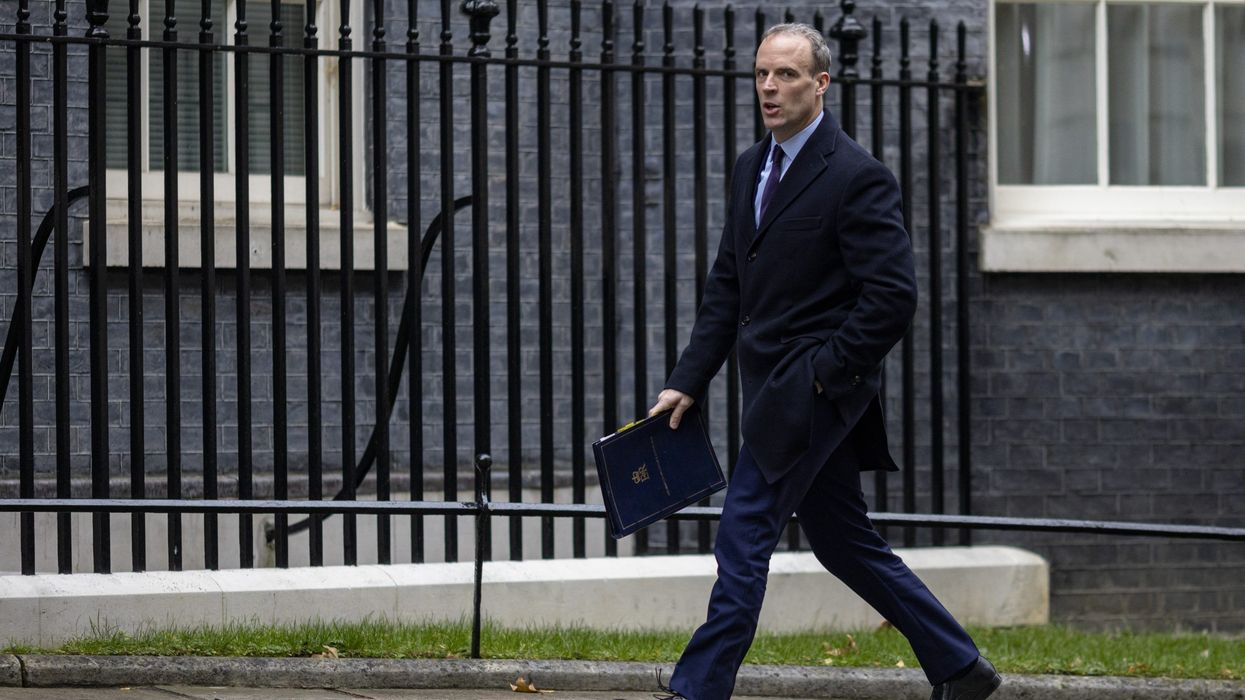The British government was on Tuesday accused of botching its handling of the evacuations from Afghanistan, after claims it was unprepared and could have done more to help.
The chairman of the cross-party foreign affairs committee, Tom Tugendhat, said the emergency response to the Taliban takeover in August left Afghans "abandoned".
His comments came after senior civil servants were quizzed about the crisis, following claims from a junior desk officer at the Foreign Commonwealth and Development Office.
Whistleblower Raphael Marshall said just five percent of between 75,000 and 150,000 Afghan nationals who applied to flee under one UK repatriation scheme received help because of the "chaotic" and "dysfunctional" response in London.
Thousands of emails requesting assistance went unread, he claimed, and the crisis centre was understaffed and under-resourced, with a lack of linguists and equipment.
Tugendhat, a former British Army officer who served in Afghanistan, said Marshall's "powerful and compelling" evidence had helped bring "fundamental failures to light".
"The evidence we've heard today points to a lack of leadership, urgency and adequate resourcing," he added.
Central to the questioning was why the most senior civil servant in the Foreign Office, Philip Barton, was on leave from August 9 to 26 at the same time as his boss, Dominic Raab.
Raab, who was moved from the post as foreign secretary in a recent reshuffle, came under fire at the time after refusing to cut short his Greek beach resort holiday.
In a round of broadcast interviews ahead of the hearing, he rejected the whistleblower's claims.
"I regularly checked that we were properly resourced," Raab told Sky News as he defended his handling of the crisis.
- 'Complete nonsense' -
Barton told the committee: "If I had my time again, I would have come back from my leave earlier than I did."
But he maintained there was "no inevitability" that Kabul would fall by the time he left on vacation, and that his presence would not have made a difference to the outcome.
Cover was put in place during his absence, he said. "I was confident we had a system in place to discharge our duty of care," he added.
Prime Minister Boris Johnson also defended the airlift, which saw 15,000 people flown out of Kabul, after the Islamists stormed the capital on August 15.
He called it "one of the outstanding military achievements of the last 50 years or more".
And he dismissed as "complete nonsense" a claim that he intervened personally to help to evacuate animals from a shelter run by a former Royal Marine.
Barton also said there was "no prioritisation of animals over people" and the charter flight to airlift dogs only happened after people had left Kabul airport.
"We all wish we could have got more people out," he added but said that although he took Marshall's allegations "very seriously", he did not agree with all his claims.
More than 500 government staff were drafted in to deal with a "monumental amount of correspondence", working under high pressure both at the ministry and at home because of Covid curbs, he added.
Dealing with those requests took priority over replying to them, he said.




